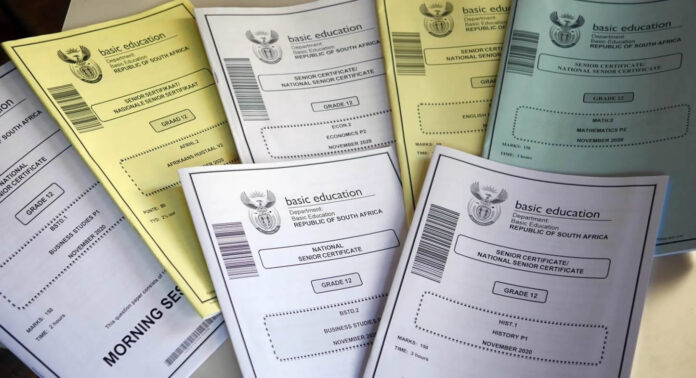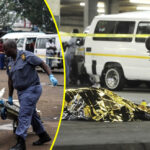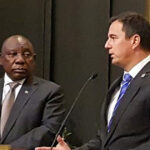Johannesburg – The cost of printing South Africa's matriculation examination papers has exploded, rising from under R1 billion to over R3.6 billion.
This dramatic increase follows a shift from the state-owned Government Printing Works (GPW) to private printers in eight of the nine provinces, ostensibly to enhance security following alleged exam paper leakages. However, this change has raised serious concerns about potential irregularities and inflated pricing.
City Press reported that only one province continues to use the GPW for printing its Grade 12 matric examination papers. Three provinces utilise Lebone Litho Printers, while others have contracted Lithotech. The move to private printers, while presented as a necessary security measure, has resulted in vastly increased costs. For example, Limpopo's printing expenses reportedly jumped from approximately R13 million at the GPW to over R30 million with a private provider. Similarly, the North West province saw costs increase from R8 million at the GPW in 2017 to over R27 million after switching to a private printer. Gauteng's costs allegedly rose from around R17 million to over R36 million, and sources indicate that KwaZulu-Natal and Gauteng are now the highest spenders on printing, a factor attributed to their larger number of matriculants.
Insiders suggest that concerns about previous exam paper leaks, implicating certain government officials at the GPW, fuelled the decision to outsource printing. However, this outsourcing has created opportunities for irregularities, with allegations of officials inflating prices for personal gain. One informant stated, “The price has been drastically increasing without explanation – and no one’s questioned it.”
Department of Basic Education spokesperson, Elijah Mhlanga, acknowledged the varying cost arrangements between provinces and their service providers. He explained, "Some provincial education departments use the service provider only for the printing of exam papers; while others use it for printing and packing them; and still others use it for printing, packing, distribution and security."
He confirmed that the government is spending between R3 800 and R4 000 per candidate, a figure that varies depending on provincial size and the number of candidates. Mhlanga also stated that the department provides standard operating procedures but that the final choice of printer rests with each province's accounting officer.
He said: "The department of basic education provides the provincial departments with the standard operating procedures for the printing of exam papers. Who they finally appoint as their printing service provider is the decision of the accounting officer in a provincial department."
Provincial education departments offered explanations for their increased spending. Steve Mabona, spokesperson for Gauteng, highlighted that their budget covers assessment materials for all grades, not just matric. He added that provinces are required to use their own printing presses, often outsourcing if they lack facilities.
“The GPW is one of several service providers available to render this service,” he stated.
Howard Ndaba, spokesperson for the Free State, echoed this, emphasising that their budget encompasses printing, transportation, and security for all grades and that all costs are consistently audited.
He said: "All relevant costs will be consolidated after the examinations, which should provide the actual costs incurred. All the costs have consistently been audited and no irregular findings have ever been detected by the Auditor-General."
Mosebjane Kgaffe, spokesperson for Limpopo, highlighted the extensive 18-month preparation period for the NSC exams.
Despite these explanations, concerns persist about inflated costs. Sources suggest that the increased expenditure is not solely due to enhanced security measures, but also to potential malfeasance.
One senior official commented: "While many people might be focused on smooth preparation of the exams, including printing of the exam papers, distributing and safeguarding them against leakages and theft, some politicians and officials are accused of having identified a gap to loot without being caught."
This individual noted that the costs cited do not include storage, tracking devices, invigilator payments, marking, catering, accommodation, and other logistical expenses.
Adding to the opacity, several provinces refused to disclose their printing costs or the names of their service providers, citing security concerns. Gauteng, Limpopo, and the Free State argued that this information was not publicly available to protect the exam papers. The alleged inflated costs are linked to tight security measures, including declaring printing venues as national key points and keeping the addresses of printing companies secret.
A source explained the process: "Each provincial department was required to provide the name of the company with which it was entering into a contract before it was approved. National government then conducted a thorough risk assessment of the company and its safety. This involved the security cluster, including the police, the State Security Agency and others."
City Press understands that Lithotech and Lebone Litho Printers are among the companies involved. Lithotech, owned by Bidvest SA, is described as one of the country's largest industrial companies. Lebone Litho Printers is a 100% black-owned company. Sources question the justification for the high costs, noting that standard, not glossy, paper is used.
This year, nearly 900,000 full- and part-time candidates registered for the NSC and Independent Examinations Board exams. Basic Education Minister Siviwe Gwarube confirmed the completion of exam paper setting, printing, and distribution, with 162 papers approved by Umalusi.
She stated: "We’ve completed audits of all storage facilities across the country to ensure they meet the required standards for secure handling of examination materials," adding that distribution trucks have tracking systems and that exam centres are monitored.
Despite these assurances, the substantial increase in printing costs and the allegations of irregularities demand further investigation.











